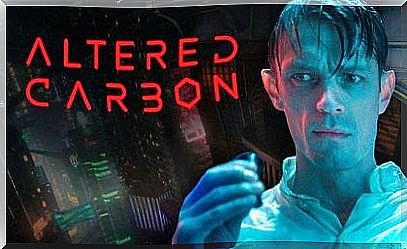The Extended Mind: Connecting Beyond Brain And Skin

The extended mind starts from a philosophical theory as revealing as it is interesting. According to this principle, our mind does not only live in this neural universe contained and delimited by a brain. The essence of our thoughts, our creativity, our emotions and our desires also extends to the midst of people, giving life to social relationships, culture, language, technology …
The extended mind hypothesis, as we can guess, may seem a bit drastic and even hard to believe. So, for example, for a good part of psychologists, every cognitive process is the result of a biochemical process. So we receive stimuli, we process them in this fabulous organ that is the brain, and after that we emit responses (behaviors).
This rather materialistic or neurological monism-based point of view does not accept that the mind exceeds the limits set by the skull. Descartes had already considered another possibility. The famous French philosopher, mathematician and physicist had pointed out that the body and the mind were two different dimensions and completely separate from each other.
Currently, this premise has taken a step forward to invite us to reflect on an interesting point. A part of social psychology, besides some philosophers, asserts that the mind does not only inhabit this territory composed of an organism and a neurological network.
The mind expands, moves forward and connects. Cognitive systems do the same, and all for a very specific purpose: to shape our social world, our interactions and our creations.

The extended mind: when our thoughts go beyond our skin
The most classical psychological science understands that all processes are intracranial. In other words, our spirit resides in this internal chamber, while society and the world make their way to another place. The theory of the extended mind does not see it that way.
Despite everything, she accepts the fact that all thought, reflection, desire, creation and motivation start from the human brain but do not stay there. What is more, the function of the mind is to emerge in order to interact with the environment, create it and give it meaning.
Breaking down mental limits
The theory of extended mind first appeared in the late 1990s. It comes from the philosopher Susan Hurley. This professor at the University of Bristol has revolutionized much of the academic world with her work Consciousness in action.
- In the latter, she criticized the classic schema of cognitive psychology which described the mind as that entity which is limited to processing stimuli (inputs) and emitting responses (outputs).
- A little later, the studies of Oxford University philosophers Andy Clark and David Chalmers, as well as the book Supersizing the Mind , published in 2008, definitively brought the theory of extended mind to life.
- The main premise of the 90s is that we should drop the classic idea that the human spirit resides only in our heads.
We must go beyond this limit, dodge it, dare to look beyond to broaden our perspectives and understand how our world and society are really constituted.
Mindware, the mental machinery that goes beyond the brain
Mindware is a new social science concept worth keeping in mind. This term includes all the resources that make up the human mind. We find neurological, bodily, biochemical and extracorporeal processes.
What are we referring to with this last idea?
- The theory of the extended mind invites us to understand that the mind can engage external “software” to act outside our body.
- We can, for example, use books and technology, connect with other people to learn new things… All of these processes are evidence of our mental processes, they make us grow, learn, evolve as a group social.
- According to this theory, the human organism is at all times linked to external entities that create a two-way interaction.
- It is therefore an “organized system” in which we start from internal cognitive processes to arrive at this environment that surrounds us, with the aim of obtaining something: learning, relationships, experience …
- This idea, in itself, is basic for childhood development. The child extends his mind to connect with his environment, the people who live with him and any phenomena occurring around him.

The extended mind and artificial intelligence
There is a part of the scientific community that does not accept and view the theory of the extended mind positively. This cognitive externalism makes her uncomfortable because it situates the universe of consciousness beyond our body, these limits that we all thought we were in control.
Thus, certain currents of philosophy and also of neuroscience suggest that in a short time we will have portable cognitive units.
These would be neural implants that would endow us with certain skills. So we wouldn’t need any experience or learning to get them. These would be external “mental units” that we would install in our mind, a bit like software, and which would allow us to be more efficient.
This brings us back to what University of California professor Donna Haraway told us in 1983 with her Cyborg Manifesto. We could see a future dawn with hybrid organisms, in which organic and technological realms give life to more advanced humans.
Either way, today we know that big tech companies are already laying the groundwork for artificial intelligence. The extended and “portable” mind is a basic resource for endowing robots with this cognitive capacity which enables them to act in various situations.
Despite everything, as neurologist Antonio Damasio points out, artificial intelligence will never be able to resemble human intelligence because it will lack an essential, basic and determining element: emotions.










